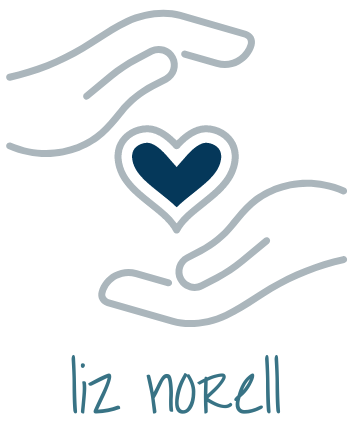To talk to me about the work I do — teaching, advising, coaching — is to understand in fairly short order that I’m a person who genuinely, full-throatedly loves her work. People say things to me like, “you just glow” or “you REALLY LOVE your job!” … often with a mixture of awe and apprehension in their voices and on their faces.
As I’ve written before, the naive-but-prescient 17-year-old Liz who chose a senior yearbook quote when to Joseph Campbell’s somewhat trite: “Follow your bliss.” In my life, I’ve thrived most when I’ve most fully embraced those three simple words: (1) Find my bliss; (2) Chase it; (3) Repeat.
Where does one find her bliss, though? How to begin the search? How to know bliss when it drifts by? And just how to hold on and follow it without being hedonistic, selfish, or flaky?
To be honest, these aren’t questions I can really answer. (Sorry, dear reader.) But I have learned a few things about my own Bliss Process (if you will), and I hope they might inspire you to find your own, uniquely-you bliss.
I’m fairly confident that I have been an optimistic, idealistic sort since the day I was born. As a child, I enjoyed flights of fancy romping in the woods behind our house; I enjoyed putting puzzles together, making order out of a jumbled mess; and, most of all, I devoured books. Ramona, Elizabeth & Jessica, and the Babysitters Club were my constant companions. My childhood reading, again and again, nurtured the hopeful, aspirational instincts I’d been born with. I could always imagine stories taking a turn for the better; what’s more, when life wasn’t perfect, I could retreat to a fanciful place between the pages of whatever I was reading at the time.
I think these early experiences cemented for me, and in me, the notion that I didn’t require other people to be content. I was a pretty shy person in my younger years, feeling more comfortable observing than performing. I learned to value quiet, simplicity, and solitude.
In high school, my favorite English teacher saw something in me that I never could’ve seen in myself at the time. She wrote in a letter of recommendation for a scholarship:
“While I have had many bright, intellectually stimulating students in my teaching career, few can match Elizabeth’s personal qualities.
One of the most significant of these is her serenity; at her tender age, she is able to maintain her focus and her sense of self when her peers become angry, tearful, or unpleasant.
Elizabeth smiles, shrugs, knows that the world does not hinge on a grade, a popularity contest, a silly high school crisis. I have watched her in a roomful of chaotic activity and noise come to the computer, tune out all distractions, and produce high-quality work. … And finally, Elizabeth genuinely loves learning. Her approach is gentle and wide-eyed; she views the chance to experience new things as a wonderful privilege, an unexpected and undeserved surprise.”
To be honest, I was so sure she was just exaggerating; I wasn’t even totally sure I understood what “serenity” even meant!
With each passing year, as I’ve matured and become more self-aware, I’ve come to understand just how apt her descriptions of that younger me were. While I’ve struggled with anxiety a whole lot of my adult life, I’ve also always been able to maintain a grounded sense of what, ultimately, really matters. I stress the details more than I’d like, but I also can roll with the unexpected … especially if you give me a little space and time to readjust my expectations. (Ha.)
Although I live in a very mental space most of the time, training to become a life coach has taught me how much I can trust my intuition as well. The work I’ve done in the last three years to connect with the wisdom of my body has served me so well; there’s something about knowing myself — mentally, emotionally, and physically — that gives me access to a deeper level of understanding others as well. It reminds me of something I heard recently (maybe from Brene’ Brown, I’m not sure?):
The way we treat ourselves is the way we treat others; shifting one affects the other.
But the serenity of which Mrs. Brantly spoke above? The wide-eyed approach to learning and experiencing from this world? I can trace that, and so much about how I live my life, to one morning in 1993, when a dear friend had a car wreck on the way to school. The hubris of youth assumes invincibility; her death shook me, becoming a talisman to any moment that I forgot how quickly everything could be snuffed out.
Evidence that that moment 25 years ago impacted my way of being is littered throughout writings accumulated over time. It feels so banal to observe that death sharpens our understanding of what’s important. And yet, I understood at 16 that a vibrant, spunky, beloved life cut short simply could not be for naught. I promised myself, and my friend, that I would carry her legacy with me for the rest of my days.
Why do I love my life with the force I do? Why does my work bring me such joy? There are so many reasons, and a few of them have to do with my determined decision at 16 to live a life that took nothing for granted and that relished Every Good Thing, no matter how small.



